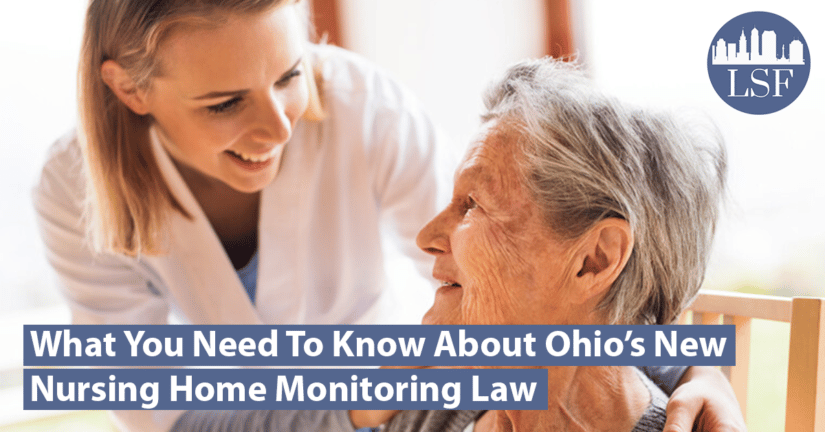Ohio Nursing Home Monitoring Law Goes Into Effect March 23, 2022: Will It Reduce Nursing Home Negligence?

Ohio recently passed Esther’s Law, a nursing home monitoring law that allows family members and designated guardians to install cameras and other digital devices in a loved one’s nursing home room to help combat abuse and negligence. The law, named after Esther Piskor, a nursing home negligence survivor, goes into effect on March 23, 2022.
Under the law, family members are allowed to install cameras in a nursing home resident’s room with the consent of the party being monitored and/or his or her guardian. If the resident shares a room with another individual, that person will also need to also provide consent for the monitoring device, or the facility will need to make reasonable accommodations to ensure the resident is moved into a room where monitoring can commence.
Is Monitoring Your Loved One The Right Choice?
Millions of adults over 65 are victims of elder abuse in the United States and around the globe. Since the start of the COVID-19 pandemic, that number has increased significantly. Abuse can range from a one-time act to repeated patterns of problematic behavior and can include verbal, emotional, psychological, physical, financial, and even sexual abuse. One in six people over 65 has experienced some form of elder abuse, according to the World Health Organization. Rates of abuse are even higher among those who reside in nursing homes and other care facilities.
Unfortunately, abuse can often be difficult to prove. Certain tell-tale signs, such as bruising, bedsores, and changes in behavior are important clues that something is wrong. However, abusers often manipulate victims into staying quiet about ongoing abuse, which can prolong the amount of time a victim suffers. Additionally, some side effects of abuse are not so easy to spot. These can include depression, declining health, financial problems, and cognitive decline.
Find out about the signs of nursing home abuse: Nursing Home Negligence and Injury – What You Need To Know
Video surveillance and other digital monitoring methods can allow families to spot problems early and collect evidence to confront the facility harboring the abuser. Concrete visual evidence is extremely compelling in a court of law and can be an invaluable component of an elder abuse case. Additionally, staff who are aware that they are being recorded are less likely to commit abusive acts against a victim.
Nursing home monitoring has many positive aspects, but there are downsides that should be noted. Some residents may consider having a camera in their room an invasion of their privacy. Staff can sometimes become resentful toward residents with monitoring cameras and may negatively single them out and provide less assistance when needed.
It is important to weigh the pros and cons for your loved one and decide together when possible what the best solution is for your family and circumstances.
If you believe your loved one has been a victim of nursing home abuse, it is important to relocate them to a safer environment if at all possible. Report the abuse to the police or the Ohio Department of Health. Keep a record of evidence and your loved one’s accounts of what happened. Finally, contact a nursing home negligence and abuse attorney to help protect your loved one’s legal rights. A settlement or financial compensation cannot undo neglect and abuse, but it can be a catalyst for healing and moving forward in a positive direction.
Back To Blog